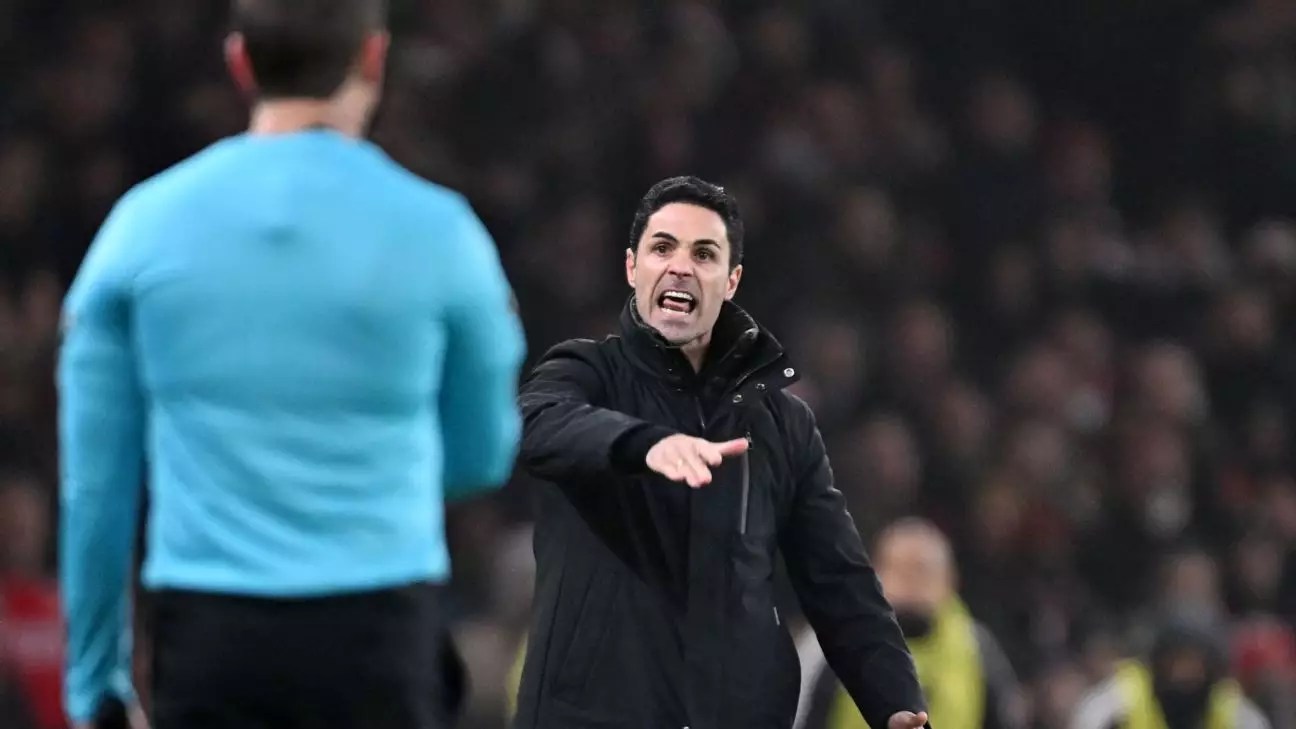The recent fixture between Arsenal and Aston Villa was marked by a contentious VAR decision that left Mikel Arteta frustrated. He described the handball call as a “difficult” one, emphasizing how different camera angles painted conflicting pictures of the incident. Arsenal, who had established a two-goal lead, were left reeling after Villa equalized through second-half goals from Youri Tielemans and Ollie Watkins. To add insult to injury, an apparent game-winning goal from Mikel Merino was annulled after a handball was called against Kai Havertz, a decision that was confirmed by VAR official John Brooks.
Post-match, Arteta candidly expressed his mixed feelings regarding the handball rule, acknowledging the emotional rollercoaster of celebrating a goal only to have it taken away. This insight into Arteta’s perspective underscores the challenges that managers face amidst the increasing use of technology in football. His comments reflect a broader sentiment among football hearts, revealing how such decisions can evoke frustration as teams navigate the ebbs and flows of a tightly contested game.
Players’ Perspectives on the VAR Ruling
Villa’s forward, Ollie Watkins, also weighed in on the contentious decision, admitting that from his vantage point, the handball was not entirely clear-cut. His acknowledgment that the ruling could have gone either way adds complexity to the debate surrounding VAR’s role in football. Watkins opined that had the situation favored Aston Villa, it could have sparked disappointment among the squad, illustrating how subjective interpretations of the rules can shift perceptions of fairness in high-stakes matches.
This incident raises critical questions regarding the efficacy of VAR in making definitive decisions that further complicate an already vibrant game. As the technology continues to evolve, players, coaches, and fans alike are left to grapple with its implications, particularly on such vital occasions in a league season.
The aftermath of the draw leaves Arsenal six points adrift of league leaders Liverpool, who have demonstrated formidable strength, scoring two late goals against Brentford to secure a win. Liverpool’s depth in talent has allowed them to leverage substitutions effectively, thereby enhancing their game dynamics as the title race heats up. Arteta observed this disparity, noting that Arsenal’s options were limited due to injuries plaguing key players like Bukayo Saka and Gabriel Jesus.
Arteta’s admission that he had only one substitute to make during the game against Villa highlights the pressing need for squad depth in the rigorous demands of the Premier League. The wear and tear on a squad can easily affect performance, especially when competing at the upper tiers of the table against clubs with seasoned players ready to step in when needed.
As Arsenal continues their campaign, the challenges are multifaceted. Between dealing with the physical demands of the game and navigating officiating decisions that leave players and fans in a state of uncertainty, their title aspirations are under scrutiny. The reliance on a thin squad could hinder their ambitions if injuries persist.
Ultimately, the combination of VAR’s inconsistencies and the pressing issues of squad depth will play pivotal roles in shaping the outcomes of matches to come. As Arsenal tackles these challenges, both Arteta’s leadership and the resilience of the squad will be tested as they strive to remain competitive in an exhilarating Premier League season.


Leave a Reply